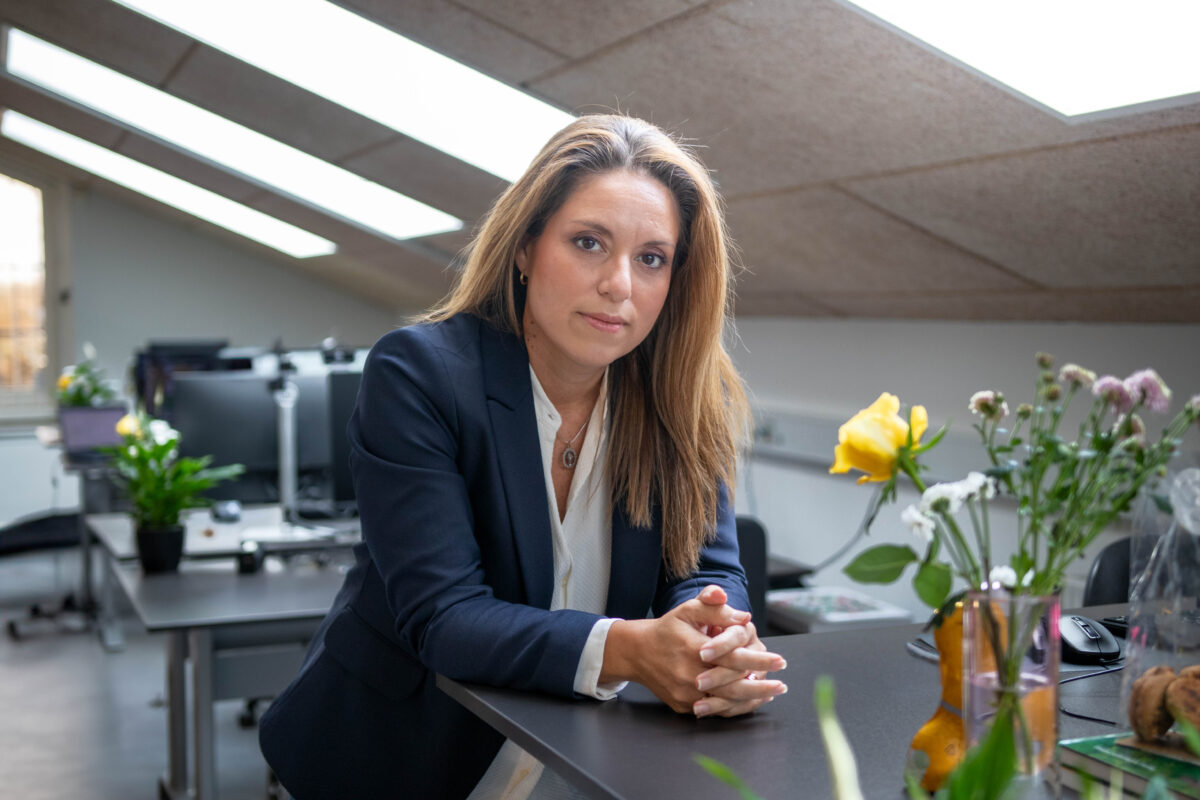I started my career in the renewable energy industry, specifically in the wind sector, and I’d say that I didn’t have difficulty establishing myself. I had a great job at the time, but I wanted to work for a higher purpose – wind power – and for people who inspired me. The industry was so focused on growth that talent was valued regardless of gender, experience, background, and culture. I am aware I had the good fortune of finding a good company and being in contact with true pioneers and strong leaders who trusted my knowledge as a young professional. They wouldn’t have considered discounting valuable talent purely on gender grounds. So, the combination of a young and flourishing industry with strong, innovative leaders made my beginnings in this sector rather engaging.
We need to foster corporate cultures where diversity is key and the gender gap, including the pay gap, is addressed as a priority. Companies can be proactive by looking for female talents, targeting job advertisements for women, offering flexibility to support work-life balance, providing role models and sponsors for female employees and being transparent about salaries and rewards.
The solar sector is more open to hiring women, and while I observe the same challenges as in other, more traditional industries, solar remains better than the benchmark, probably because the leaders are also younger. Younger generations are more open than previous generations, have diverse perspectives, and focus on the greater good, which includes environmental concerns, as well as society, family, and wellness. Nevertheless, we still face male colleagues, male customers, and even male business partners who expect to negotiate and deal with another man and who often patronize and even disrespect women. It really takes strong leadership and guts to stand up for our female colleagues. But we must do so!
As a manager, I’ve personally never been called “bossy” or experienced an authority gap with male colleagues. But I do have to recognize that, early in my career, I had the tendency to behave and perform “like a man” – perhaps because the stereotype of the boss was a man. I was born and educated in South America and working in Denmark, out of my comfort zone, but I jumped with my eyes wide open. I set my mind to win and coped with the challenges step by step. I learned that I could accomplish more and go further by being a female leader. I had help on my path either naturally or actively looking for it. All this help was to acknowledge who I was, the value I could bring to the table and what I could represent to the organizations I was collaborating with.
In our company, focused on C&I Solar, finding female manual workers is challenging. We trust women, their quality of work, their passion, and especially their engagement, and despite our efforts to tailor job openings for women, we struggle to receive applications, particularly for system installation, sales, and digital solutions. There are competent women available to join us in those areas, but women fear companies will not meet their needs in such jobs. Change moves slowly—too slowly but we need to own the battle and face it with the female characteristics that make us great mothers, wives, sisters, friends and amazing professionals.
The emphasis and responsibility are on the readers of these words to give women a chance. And to my next female colleague, I say, “Own your next contribution to the green path; apply for the next opening; you might be surprised!”
Mary has built a 25-year career collaborating with a wide array of organizations, from large enterprises to dynamic start-ups. Her background spans engineering, strategy, change, project and supply chain management, reflecting her multifaceted expertise. Some of Mary's notable achievements include leading an agriculture investment in Argentina with a focus on digitalization and partnerships. At Scanvægt International Group, she spearheaded the nationwide project Cajas Negras, demonstrating her proficiency in change and project management. During her time at Siemens-Gamesa, Mary implemented cost-saving measures and a company-wide strategy to reduce offshore wind energy costs, alongside leading a digital transformation. At Grundfos Industry Division, she enhanced efficiency, achieved cost savings, and made significant contributions to Sustainable Development Goals (SDGs). Mary's accomplishments go beyond metrics like quadrupling sales or delivering national projects. She understands the vital role of human capital in boosting efficiency, revenue, and contributing to SDGs.
Interested in joining Mary Riccio-Kjærgaard and other women industry leaders and experts at Women in Solar Europe? Find out more: www.wiseu.network
The views and opinions expressed in this article are the author’s own, and do not necessarily reflect those held by pv magazine.
This content is protected by copyright and may not be reused. If you want to cooperate with us and would like to reuse some of our content, please contact: editors@pv-magazine.com.



By submitting this form you agree to pv magazine using your data for the purposes of publishing your comment.
Your personal data will only be disclosed or otherwise transmitted to third parties for the purposes of spam filtering or if this is necessary for technical maintenance of the website. Any other transfer to third parties will not take place unless this is justified on the basis of applicable data protection regulations or if pv magazine is legally obliged to do so.
You may revoke this consent at any time with effect for the future, in which case your personal data will be deleted immediately. Otherwise, your data will be deleted if pv magazine has processed your request or the purpose of data storage is fulfilled.
Further information on data privacy can be found in our Data Protection Policy.